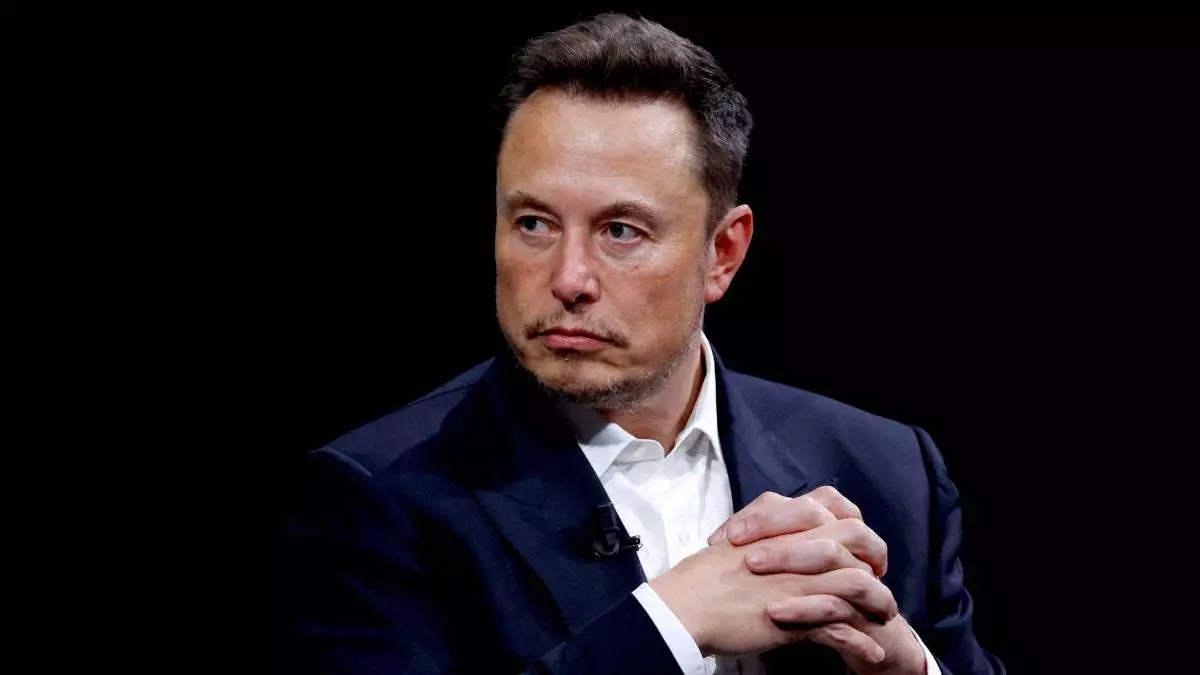Elon Musk, the CEO of Tesla and SpaceX, is no stranger to controversy, but recent developments involving the U.S. Securities and Exchange Commission (SEC) have escalated tensions surrounding his business and personal conduct. Following his high-profile acquisition of Twitter for $44 billion, Musk’s legal entanglements have drawn significant attention. In light of his recent failure to comply with a court-ordered testimony, the SEC has moved to impose sanctions against him, sparking a new chapter in their ongoing battle.
On a seemingly ordinary Friday, the SEC filed a motion in federal court that can potentially have serious repercussions for Musk. The crux of the SEC’s contention revolves around Musk’s decision to inform the agency only three hours before a scheduled testimony that he would not be attending. Instead, Musk opted to oversee a SpaceX launch in Florida on that date, a move the SEC characterized as a violation of a previous court order. The regulator’s assertion that Musk was likely aware of the launch schedule days in advance underscores their argument that his excuse was rather flimsy. The SEC’s lawyer, Robin Andrews, articulated this sentiment sharply, calling Musk’s behavior an act of “gamesmanship.”
What is particularly striking about this situation is the inherent contradiction between Musk’s lofty responsibilities as a business mogul and his apparent disregard for legal obligations. By failing to adhere to the court’s directive, Musk casts a shadow over his reputation, raising questions about whether he values legal compliance as highly as he does his entrepreneurial ambitions.
Musk’s legal battles are not merely procedural hurdles; they carry significant implications for his businesses and their stakeholders. Currently, the SEC is probing into Musk’s potential violations of securities laws regarding his acquisition of Twitter shares. Notably, there was a delay in disclosing his purchase when he accumulated enough shares to surpass the 5% ownership threshold — a mandate for public disclosure. Shareholders have expressed their grievances about the timing, and this scrutiny exacerbates existing tensions related to transparency in corporate governance.
The SEC’s investigation stands as a reminder of the challenges entrepreneurs face in navigating regulatory protocols, particularly when their actions can alter the dynamics of public markets. Musk’s ability to weather the scrutiny will likely depend on his legal counsel’s navigation of such complex issues. Moreover, his history with the SEC, including the 2018 lawsuit related to his tweets about taking Tesla private, reveals a pattern of confrontation with regulatory bodies. Musk may argue this action is another instance of regulatory overreach, insisting that the SEC is simply trying to “harass” him with unwarranted subpoenas.
In response to the SEC’s move for sanctions, Musk’s attorney, Alex Spiro, described such measures as “drastic” and unwarranted. Spiro contends that Musk’s absence was due to an unforeseen “emergency” related to the launch, which he claims Musk didn’t cause, suggesting it should be considered a legitimate reason for his inability to appear. Spiro’s argument emphasizes the notion that Musk’s responsibilities as a space industry leader could sometimes conflict with compliance in litigation.
Yet, one must question whether these arguments will resonate robustly in court. The rationale of prioritizing a space launch over legal testimony could be scrutinized not just by the SEC but by the public as well. The balancing act between Musk’s innovative ventures and accountability to regulatory frameworks continues to be fraught with challenges, revealing a fissure where ambition sometimes meets legal obligation.
The Broader Implications for Business Leaders
Musk’s ongoing saga with the SEC serves as a cautionary tale for other business leaders. It illustrates the fine line that entrepreneurs must tread in pursuing visionary projects while remaining vigilant about legal responsibilities. As public figures in complex financial landscapes, they operate under a microscope, with any missteps likely leading to substantial ramifications.
Navigating the path of innovation requires not only visionary thinking but also a robust understanding of corporate governance and legal compliance. As Musk seeks to reschedule his testimony for October 3, the outcomes of these proceedings could reverberate throughout the business community, potentially shaping how future entrepreneurs approach the intersection of innovation and regulatory scrutiny.
Ultimately, while Musk’s unyielding resolve has undeniably transformed industries, the persistent tug-of-war with the SEC highlights an essential truth: accountability must accompany ambition, lest visionary leaders find themselves ensnared in their own ambitions.

